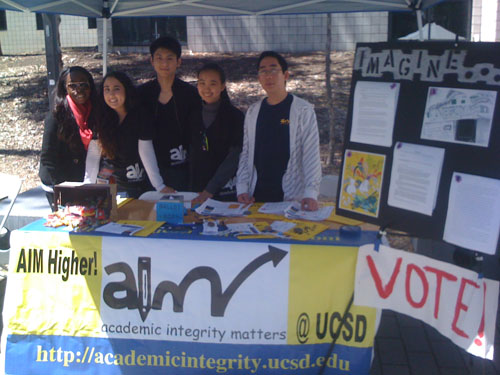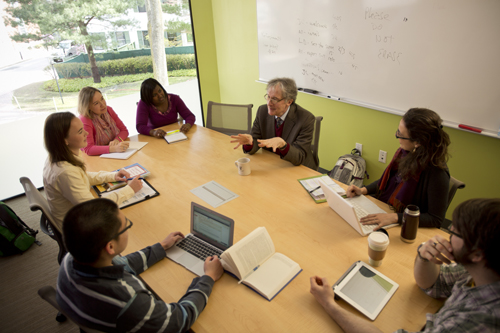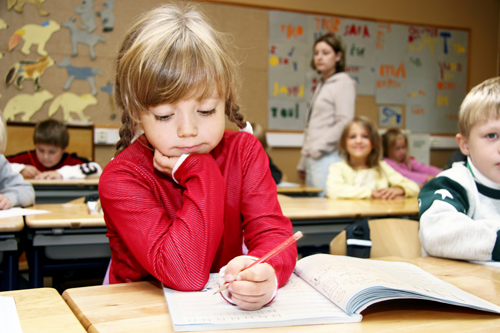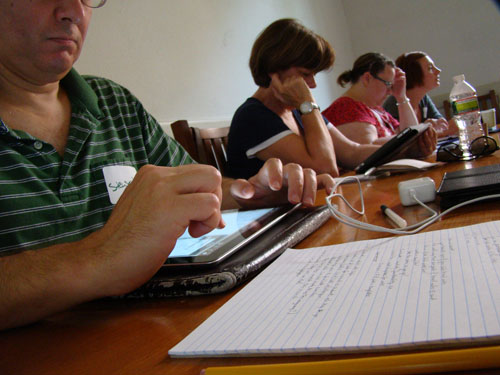I applaud Dr. Howard Gardner for his op-ed in the Washington Post — “When Ambition Trumps Ethics” — relating to the current alleged and evolving cheating scandal at Harvard University.
In a recent interview with Dr. Gardner, we discussed a number of the moral break-downs in our education system, including the problem of cheating (A Pesquisa Global para a Educação: O que é bom?).
According to a pesquisa de 24,000 high school students in grades 9-12, 95% of students said they cheated during the course of their education, ranging from letting somebody copy their homework to cheating on tests.
Before we can begin to find solutions to cheating, we need to ask the right questions. With the intent of furthering the conversation, here is my list of questions with regard to cheating:
- What can be done to better address students compromising ethics as they deal with performance pressure?
- Do our children really understand the difference between what is cheating and what is not?
- If students’ negócio, sports and political role models cheat and get away with it, can we expect students not to cheat?
- If students’ professores, parents and peers are cheating, can we expect students not to cheat?
- Has cheating become an indelible part of our culture?
- How much blame can we place on standardized testing for the problems with cheating?
- Do we believe society needs to challenge our culture’s current definition of success in order to help our children better understand why cheating leads to a precarious life and a precarious society?
- What should be the punishment for someone who cheats?
- Who should take responsibility for the increasing number of cheating scandals over the past few years? Os alunos? Pais? Educadores? Society?
- Is it time to focus more on the research of ethics leaders like Dr. Gardner in order to find solutions to cheating?
Na busca Global para a Educação, se juntar a mim e líderes de renome mundial, incluindo Sir Michael Barber (Reino Unido), Dr. Michael Bloco (US), Dr. Leon Botstein (US), Professor Clay Christensen (US), Dr. Linda, Darling-Hammond (US), Dr. Madhav Chavan (Índia), Professor Michael Fullan (Canadá), Professor Howard Gardner (US), Professor Andy Hargreaves (Reino Unido), Professor Yvonne Hellman (Holanda), Professor Kristin Helstad (Noruega), Jean Hendrickson (US), Professor Rose Hipkins (Nova Zelândia), Professor Cornelia Hoogland (Canadá), Senhora. Chantal Kaufmann (Bélgica), Dr. Eija Kauppinen (Finlândia), Secretário de Estado Tapio Kosunen (Finlândia), Professor Dominique Lafontaine (Bélgica), Professor Hugh Lauder (Reino Unido), Professor Ben Levin (Canadá), Professor Barry McGaw (Austrália), Shiv Nadar (Índia), Professor R. Natarajan (Índia), Dr. PAK NG (Cingapura), Dr. Denise Papa (US), Sridhar Rajagopalan (Índia), Dr. Diane Ravitch (US), Sir Ken Robinson (Reino Unido), Professor Pasi Sahlberg (Finlândia), Andreas Schleicher (PISA, OCDE), Dr. Anthony Seldon (Reino Unido), Dr. David Shaffer (US), Dr. Kirsten Immersive Are (Noruega), Chanceler Stephen Spahn (US), Yves Theze (Francês Lycee EUA), Professor Charles Ungerleider (Canadá), Professor Tony Wagner (US), Sir David Watson (Reino Unido), Professor Dylan Wiliam (Reino Unido), Dr. Mark Wormald (Reino Unido), Professor Theo Wubbels (Holanda), Professor Michael Young (Reino Unido), e Professor Minxuan Zhang (China) como eles exploram as grandes questões da educação imagem que todas as nações enfrentam hoje. A Pesquisa Global para Educação Comunitária Página
C. M. Rubin é o autor de duas séries on-line lido pelo qual ela recebeu uma 2011 Upton Sinclair prêmio, “A Pesquisa Global para a Educação” e “Como vamos Leia?” Ela também é autora de três livros mais vendidos, Incluindo The Real Alice no País das Maravilhas.
Siga C. M. Rubin no Twitter: www.twitter.com/@cmrubinworld






Comentários Recentes